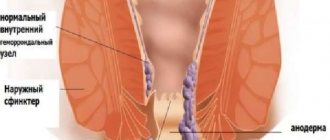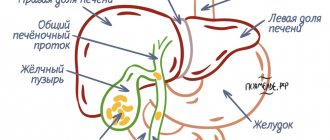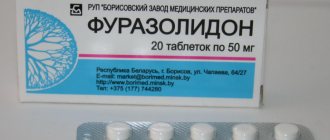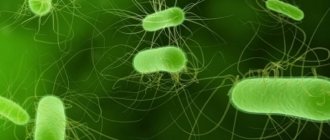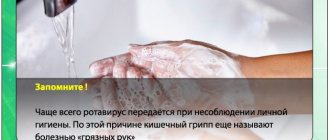In accordance with the general term “food poisoning,” it is customary to understand a pathological condition of the body that occurs as a result of eating low-quality, spoiled or contaminated food products with pathogenic microflora. Unfortunately, no one is immune from various forms of poisoning, including women who breastfeed.
Breastfeeding during illness is completely acceptable in the vast majority of cases.
As you know, mother's milk contains a lot of useful substances that are necessary for the full growth and development of the baby. However, along with food, pathogenic microorganisms that are the direct culprits of food poisoning can also penetrate into milk.
Fortunately, this happens in fairly rare cases. As a rule, food poisoning during breastfeeding is not a direct indication for cessation of lactation. Provided there is no danger to the baby's health, you should continue feeding, however, while observing some safety measures.
Causes of poisoning
You can get food poisoning while breastfeeding for the following reasons:
- after eating low-quality products that have expired (especially perishable ones) or were improperly stored,
- through unwashed hands,
- after eating poorly washed vegetables and fruits,
- as a result of insufficient heat treatment of meat and fish products, eggs,
- improper storage of food,
- after drinking untreated water (from the tap, etc.),
- if poisonous fruits or mushrooms have been eaten,
- due to canned food prepared with technological violations.
Each of these reasons can lead to poisoning in any person, including mothers who are breastfeeding.
Myths about alcohol during breastfeeding
There are many myths about the effect of alcohol on breastfeeding. So women, hiding behind them, allow themselves to drink periodically.
More common misstatements:
- When drinking alcohol, milk increases. intended for feeding a baby. However, in reality it's the other way around
- Alcohol improves the baby's sleep quality. Alcohol causes drowsiness, but in mothers who drink, children often wake up at night and have short sleep phases
- Expressing will help remove alcohol from milk, of course not. While the breakdown products of ethanol are in the body, they are also in the “food” for the child
- Alcohol does not change the taste of breast milk. But in truth, regular drinking leads to a deterioration in the taste of the baby’s “delicacy.”
Alcohol is not allowed during breastfeeding, as it negatively affects the child’s health. In addition, under the influence of ethanol, a woman cannot fully monitor her child.
Symptoms
Food poisoning is always accompanied by characteristic symptoms that clearly indicate problems in the gastrointestinal tract:
- diarrhea,
- spasmodic pain in the abdomen,
- nausea,
- gagging.
These signs are almost always accompanied by general weakness and sometimes fever. The first symptoms will make themselves felt within half an hour, or less often, within a few hours from the moment of poisoning. But if this condition has been going on for more than a day (the temperature does not drop, severe diarrhea is tormenting, endless nausea and vomiting) - it is necessary to urgently call a doctor. This applies especially to nursing mothers.
Is it possible to breastfeed a child if poisoned?
This is the very question that worries women most during breastfeeding. Mothers worry whether breast milk has become harmful to the baby due to toxins that have entered the body, and whether the baby will get poisoned after feeding.
In fact, it all depends on the degree of intoxication. If a woman’s condition is classified as a moderate or severe form of poisoning, hospitalization is urgently required. If there is severe intoxication, it is really impossible to feed the child. Resuming feeding is allowed only after complete recovery. To prevent milk from disappearing while mommy is in the hospital, you need to pump regularly.
If the mother is not seriously poisoned, you can stay at home for treatment, and even continue feeding. You should not deprive your baby of the most valuable nutrition, because breast milk for him is a storehouse of useful substances and vitamins necessary for the formation of strong immunity.
Read also: About botulism in fish
In other words, it is possible to feed with mild food poisoning, since toxins affect the digestive system without penetrating into the milk. The main cause of poisoning is non-compliance with hygiene rules, so when breastfeeding a mother must keep her body and hands clean so that they are free of harmful bacteria, which, through close contact, can “get” to the baby.
What and how much you can drink
During breastfeeding, it is better to completely abandon:
- vodka
- cognac
- whiskey
- champagne
- sparkling wines
The dosage should be calculated based on the woman’s weight and the period between feedings. Typically, a portion of a light drink should not be higher than 100 g; vodka or wine is sometimes allowed to drink 20 g.
Nonalcoholic beer
It is important for women to know that not every non-alcoholic beer can be consumed. After all, so-called drinks contain a small percentage of ethanol, usually about 5 to 1. In addition, beer may contain flavor enhancers, preservatives and dyes, which are very dangerous for a child.
When choosing non-alcoholic beer, you should be extremely careful. If alcohol and artificial ingredients are not indicated on the label, you can safely drink such a drink.
How long does it take for beer to leave breast milk?
It will take about 1 hour for slender women to remove half a glass of beer, but if you drank a bottle before feeding, you should wait 4.5 hours. When the mother’s weight is about 100 kg, the body will cleanse itself in 2.5 hours.
For plump women, 300 of the intoxicating drink is eliminated in about 90 minutes, for thin women in 150 minutes.
Treatment
Even if the poisoning is not severe, you still need to take action. During periods of poor health, loved ones should provide insurance for the young mother, helping her care for the baby.
If you start treatment right away, toxins will be removed from the mother’s body faster, and the condition will normalize. Therefore, assistance in case of poisoning should be urgently directed to detoxification:
- Stomach cleansing. At the time the action begins, there are still remnants of food in the stomach, due to which the poisoning occurred, and they must be urgently removed. To do this, drink 1 liter of water or a pale pink solution of potassium permanganate and induce vomiting. Repeat the procedure until the rejected water is clear.
- Enema. This procedure will help get rid of toxins in the intestines, but it is only allowed if there is no diarrhea. You will need 2-3 liters of warm boiled water, and it is better to do the enema several times until the water coming out becomes clear.
- Sorbents. These drugs are necessary for any poisoning, because they absorb and neutralize toxins. For breastfeeding, not all medications are allowed, but activated carbon, Enterosgel, Polysorb do not have a negative effect on milk and are harmless to the baby.
- Remedies for diarrhea. If the urge to go to the toilet does not stop, Smecta in an adult dosage will come to the rescue. This drug is also not dangerous for the child, but the course of administration should not be delayed.
Thanks to these methods, it will be possible to remove the bulk of toxins from the body, after which the condition should return to normal.
A big mistake is made by those nursing mothers who, when poisoned, immediately stop breastfeeding and grab antibiotics as a panacea for all infections. Even doctors prescribe antibacterial agents during pregnancy and lactation only in extreme cases, and independent use of these “heavy” drugs is unacceptable. And if you can’t do without an antibiotic (E. coli or other bacteria have multiplied in the intestines), then only a doctor should prescribe the most suitable option. These drugs are incompatible with breastfeeding.
Alcohol while breastfeeding
Doctors strongly recommend that you stop drinking alcohol during lactation. Mothers who ignore this advice risk their baby’s health.
Breastfeeding and alcohol are completely incompatible concepts. Breastfeeding women should postpone drinking alcohol until the end of the lactation period, this will help protect the baby from various pathologies.
How long does it take for alcohol to pass into breast milk?
Alcoholic drinks quickly pass through the blood into breast milk, reaching a high concentration about half an hour after consumption.
If a nursing mother drinks alcohol at lunch (a heavy meal), then it enters the milk after 1-2 hours, and the ethanol concentration will be about a third less than when consumed on an empty stomach.
Sparkling wines enter the bloodstream and milk faster.
It is important to know that pumping is not advisable as a cleansing, because alcohol enters breast milk through the bloodstream. Consequently, it will remain there until the body is completely cleansed.
During lactation, ethanol remains in the body for a long time, which causes more harm to the baby.
How much alcohol passes into breast milk?
The characteristics of the female body mean that alcohol is absorbed quickly, but excreted extremely slowly. 10% ethanol is found in breast milk, the amount that enters the gastrointestinal tract and bloodstream.
The effect of alcohol on lactation
Alcoholic drinks have a negative effect on the lactation process, as they depress the central nervous system, whose task is to control all processes.
In women who abuse alcohol during lactation, the amount of milk produced decreases. All this is due to the fact that ethanol interferes with the release of prolactin, the hormone responsible for milk production.
Impact on a nursing mother
Drinking alcohol during breastfeeding causes pain in a woman, since ethanol leads to a narrowing of the mammary gland ducts.
A newborn has to make every effort to get food. Strong sucking leads to increased pain for the mother.
Severe narrowing of the ducts of the mammary gland leads to stagnation and the formation of plugs from clots. If the patency of the duct is not restored in a timely manner, lactostasis may form, which, if left untreated, turns into mastitis.
The above diseases are extremely dangerous for women; they require immediate treatment under the supervision of highly qualified doctors.
Traditional methods
If, after all, a nursing mother is poisoned, but for some reason does not want to take pharmaceutical drugs, you can try to recover with the help of medicinal herbs and other folk remedies:
- From vomiting. Green tea or a decoction of dill seeds (1 tsp / 1 tbsp hot water) will be useful. These drinks will not only reduce the amount of vomiting, but will also have a positive effect on lactation.
- For stomach pain. Chamomile tea will help here. It is a good analgesic, anti-inflammatory and disinfectant.
- From dehydration. Infusions of calendula or chamomile will replenish lost fluid.
- For diarrhea. If the drug Smecta is relatively harmless, then other medications for diarrhea during breastfeeding are prohibited. Therefore, folk remedies will come in very handy. Rice water, bird cherry infusion, potato starch diluted in cold water in a ratio of 15 g / 0.5 tbsp, and viscous rice porridge will help with diarrhea.
Read also: How to remove nitrates from the body
However, when using traditional medicine, you need to remember that this is not the main therapy, but only auxiliary actions. The issue of traditional medications during breastfeeding can only be resolved with a doctor. This is especially important if the condition has worsened, blood has appeared in the stool, the temperature does not drop, and the pain does not stop. In this case, you cannot continue experimenting with folk remedies. No decoction (rice or any other) will help here. With such symptoms, only the doctor will decide how to treat a nursing mother.
What to do next
When first aid is provided and the poisoned mother feels better, this does not mean that nothing more needs to be done. The body of a nursing mother continues to fight against poisonous toxins, and this needs to be actively helped. This is especially true on the 3rd day after poisoning, when interferon and antibodies begin to be produced.
What do we have to do:
- Maintain hygiene. Wash your hands more often, and especially before contact with the baby.
- Follow the regime. Lie down and rest as much as possible. The body needs strength to fight, and it must be conserved.
- Drink more. After diarrhea and vomiting, the body loses a lot of fluid that needs to be replenished. For this, special pharmaceutical solutions Oralit, Regidron, etc. are best suited.
- Eat in moderation. On the first day it is better to fast, and from the next day you can eat light and quickly digestible food that does not burden the gastrointestinal tract. The main thing is not to force yourself to eat, because there is no need for extra heaviness in the stomach and intestines after poisoning. Some time after recovery, you can move on to basic nutrition, but gradually.
- Continue to feed your baby breast milk. As mentioned above, bacteria from the gastrointestinal tract do not penetrate milk. But antibodies that fight them get there, and this forms passive immunity to many pathogens. Therefore, mild intoxication (even if the temperature is slightly elevated) does not exclude breastfeeding in case of poisoning.
And even if the mother’s digestive problems were passed on to the baby and provoked something similar in him, this is also not a reason to deny the child milk and start giving him medication. The main thing for the mother is to quickly restore the natural microflora of her intestines, and then everything will return to normal for the baby.
Preparations with bifidobacteria will help to put the intestinal flora in order, which should be taken in a 5-day course 3 times a day before meals (Eubicon, encapsulated yoghurts, etc.).
Read also: Fish poisoning in humans
Therapeutic diet
Poisoning in a nursing mother requires her to follow a special diet. The diet should consist of balanced and light foods. You will have to exclude everything fatty, fried, richly seasoned, as well as food that is difficult to digest and food rich in fiber (such food irritates the gastrointestinal mucous membranes and accelerates peristalsis).
If a nursing mother is poisoned on the 1st day, it is better to fast, but you can and even need to drink water or tea. The next day, tea is allowed with sugar and crackers. From the 3rd day after poisoning you can eat:
- mashed potatoes with water,
- semolina, rice without milk and butter,
- low-fat broths without meat,
- boiled vegetables (preferably pureed),
- steamed lean meat, fish.
But even after recovery, you shouldn’t rush into all the other usual foods to celebrate: the transition from the diet to the daily menu should be smooth.
Providing first aid to infants
It is difficult to provide assistance to infants independently at home. At this age, it is prohibited and not always possible to induce artificial vomiting or give activated charcoal.
Algorithm for a mother’s actions in case of poisoning of a baby:
- Call an ambulance.
- Providing the child with fresh air. Open the window wide, or the vent in winter.
- If the child has the urge to vomit, place him on his side.
- If you have a chill, cover with a warm blanket or blanket.
- In case of household gas poisoning, remove the child from the premises.
If the child is conscious, provide plenty of fluids - water. It is better if it is a saline solution. The powder for its preparation is sold in all pharmacies, it is affordable and should be in every home medicine cabinet.
Poisoning of an infant is a dangerous condition that poses a direct threat to the baby’s life. Therefore, it is important to prevent it in time. To do this, parents are required to comply with basic rules of behavior, safety and sanitation.
Prevention of poisoning
All preventive measures are based on attentiveness and cleanliness. Therefore, during breastfeeding, mothers are required to pay special attention to food and hygiene:
- wash your hands with soap before contacting the child and eating food,
- not only wash raw fruits thoroughly, but also scald them with boiling water,
- look at expiration dates on product packages, composition and storage conditions,
- do not eat foods with a questionable appearance or smell,
- do not drink raw water,
- buy products only in undamaged packaging,
- Do not purchase food from hand or from street vendors.
If you follow these simple rules, there will be no threat of poisoning. And along with this - questions about whether it is possible to breastfeed the child. You just need to remember that the baby’s health always depends on the well-being of his mother.
Lactation when the child is ill
If it is not the mother who is sick, but the child, then stopping breastfeeding is also unreasonable. No artificial formula contains as many vitamins and nutrients as breast milk. In addition, it has been proven that the composition of breast milk can change depending on the needs of the child, it turns out that breast milk in this case will act as a natural medicine and will help the baby overcome the disease. If the mother has no problems with lactation, then breast milk will only benefit the baby.
Although there are cases when the child’s health condition can become an absolute contraindication for breastfeeding. It is strictly forbidden to breastfeed children suffering from galactosemia.
. This genetic disease is characterized by metabolic disorders. The child’s body is unable to convert lactose into glucose, which can result in severe damage to the digestive, visual, nervous and other systems of the body.
